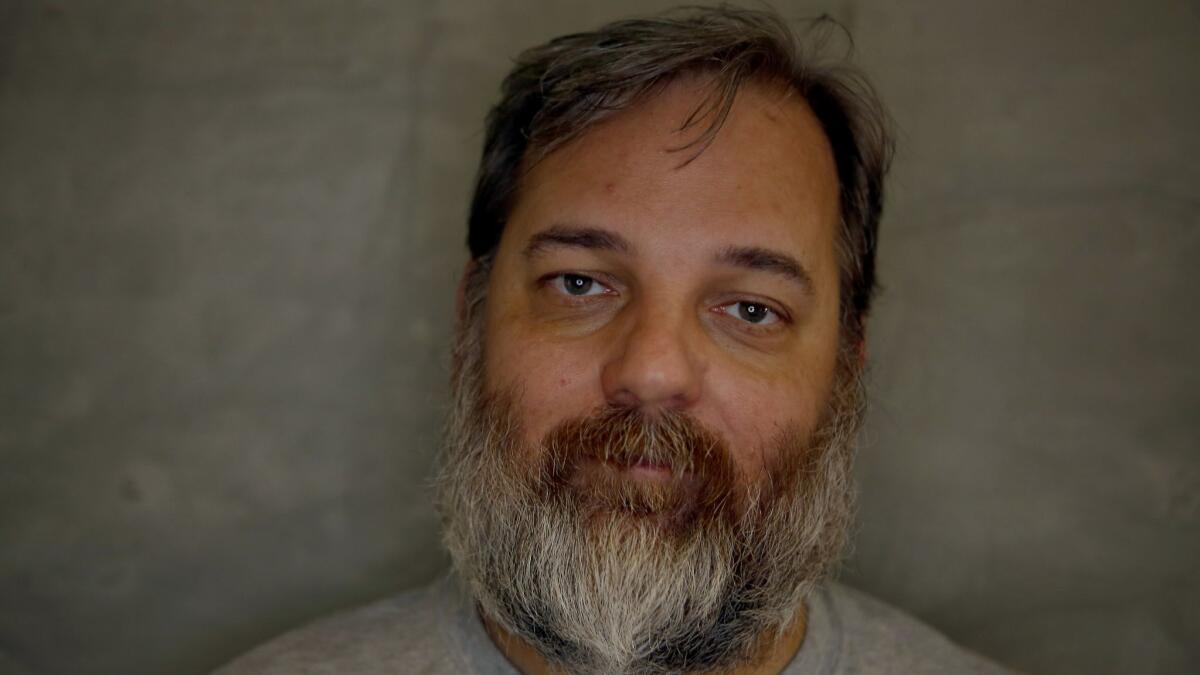A year after #MeToo upended the status quo, the accused are attempting comebacks — but not offering apologies

Louis C.K. has performed sets at the Comedy Cellar. Matt Lauer is taking meetings. Charlie Rose reportedly pitched a show in which he’d interview other men brought down by the #MeToo movement.
These men and many others caught up in allegations of sexual misconduct lost their jobs, their reputations and their privilege.
For the record:
1:10 p.m. Oct. 7, 2018This story has been updated to clarify that comedian Louis C.K. did privately contact two of the five women he admitted to sexually harassing.
What most of them haven’t lost is the conviction that they — not the women who decided to no longer suffer in silence — are the real victims and, as such, do not need forgiveness.
In other words, if you’re waiting for them to make an apology, forget it. These men might regret getting caught. But expressing true remorse about the damage they caused isn’t forthcoming.
A year after the birth of the #MeToo movement, much has changed — and nothing has changed. A woman, Christine Blasey Ford, persuasively testified before the nation and the Senate that she had been sexually assaulted by a man nominated to serve on the Supreme Court.
And a senator, in this case Ted Cruz, lamented that the hearing featuring her testimony was “sadly one of the most shameful chapters in the history of the United States Senate.”
The anger and outrage that Judge Brett Kavanaugh displayed during his Senate testimony isn’t far removed from the playbook that powerful men in Hollywood have used this past year. Les Moonves, who stepped down as chairman and CEO of CBS Corp. after a dozen women accused him of sexual assault or sexual misconduct, maintained that the encounters were either consensual or that their nature had been fabricated or exaggerated.
I recognize that there were times decades ago when I may have made some women uncomfortable by making advances. Those were mistakes.
— Les Moonves
“I recognize that there were times decades ago when I may have made some women uncomfortable by making advances,” Moonves wrote in a statement. “Those were mistakes, and I regret them immensely. But I always understood and respected — and abided by the principle — that ‘no’ means ‘no,’ and I have never misused my position to harm or hinder anyone’s career.”
Borrowing a line from Sinatra (likely a role model for these men in how to treat a dame) the “regrets, I’ve had a few” line of defense has been trotted out repeatedly over the past year. Actor Jeffrey Tambor lamented that his actions were “misinterpreted.” Pixar and Walt Disney Animation head John Lasseter apologized for unspecified “missteps.”
Accused groper Rose admitted he “behaved insensitively at times,” though he was careful to add that he doesn’t “believe that all of these allegations are accurate.” And last month, in a motion to dismiss a sexual harassment lawsuit filed against him, Rose distanced himself further from his initial apology, calling the plaintiffs’ complaints “routine workplace interactions and banter” and suggesting that the women suing were “exploiting the #MeToo movement.”
Then there were the blanket denials. Lauer, fired by NBC after multiple women accused him of sexually inappropriate behavior: “Any allegations or reports of coercive, aggressive, or abusive actions on my part, at any time, are absolutely false.” Music mogul Russell Simmons, accused of sexual assault and rape: “I vehemently deny all these allegations.” Garrison Keillor, fired from “A Prairie Home Companion” following allegations of inappropriate workplace behavior: “If I am guilty of harassment, then every employee who stole a pencil is guilty of embezzlement.”

Keillor, for one, seems to have found some sympathy, at least on his home turf. The author and radio personality recently announced he’d be performing two shows in Minneapolis with duet partner Lynne Peterson and “A Prairie Home Companion” pianist and band leader Richard Dworsky.
Both performances are sold out.
In August and this past Sunday, when C.K. showed up for surprise sets at the Comedy Cellar, the Greenwich Village club where he has long performed, he was greeted warmly with applause and support. (He has also performed at a comedy club in Long Island.) C.K. has made no mention of the the five women he admitted to sexually harassing during any of his sets or addressed his misconduct in any way. He has, however, told a joke about rape whistles and related uncomfortable stories about one of his daughters. Two women walked out of the most recent Comedy Cellar show.
Whether C.K. or Keillor can build on these micro-comebacks or if rebounds from other disgraced men are possible remains to be seen. Ange-Marie Hancock, chair of the gender studies program at USC Dornsife College of Letters, Arts and Sciences, believes that women are done with men offering apologies that are, at best, insincere, and, at worst, dismissive.
“Oh, poor top-paid executives who can’t get his job back,” Jane Fonda said on stage at an event for the recent HBO documentary “Jane Fonda in Five Acts.” “Sweep the floor at Starbucks until you learn! If you can’t learn, you don’t belong in the boardroom.”
Fonda didn’t reject the idea of a return to public life for men accused of sexual misconduct but emphasized that there needed to be time to process and learn from their mistakes. “It doesn’t matter if it’s been two weeks or two years,” she said. “It just matters what kind of changes they’ve gone through.”
“One of the key things to really think about is whether or not the men who are trying to come back from this have the sufficient understanding and, frankly, the sufficient remorse to actually make it happen,” USC’s Hancock said. “It’s more than selling it. Do you truly understand and own up to the damage that you did?”
There are examples of this actually happening. Dan Harmon, creator of the NBC sitcom “Community,” had an exchange on Twitter earlier this year with Megan Ganz, a former writer on the show, who called him out for his behavior as her boss. Harmon admitted that he had treated Ganz like “garbage” after she rejected his romantic advances. Later, on an episode of his podcast “Harmontown,” he dug into specifics.

“I crushed on her and resented her for not reciprocating it and the entire time I was the one writing her paychecks and in control of whether she stayed or went and whether she felt good about herself or not, and said horrible things,” Harmon said. “Just treated her cruelly, pointedly, things I would never, ever would have done if she had been male and if I had never had those feelings for her.”
“I never did it before and I’ll never do it again, but I certainly wouldn’t have been able to do it if I had any respect for women,” he concluded.
A day after the podcast aired, Ganz took to Twitter again, saying she accepted Harmon’s apology and forgave him.
“What I didn’t expect was the relief I’d feel just hearing him say these things actually happened,” she wrote. “I didn’t dream it. I’m not crazy. Ironic that the only person who could give me that comfort is the one person I’d never ask.”
Contrast that exchange to C.K.’s attempts at amends. In a statement acknowledging his actions, the comedian mentioned, on multiple occasions, the way these women “looked up” to him (he used the word “admired” four times). He didn’t apologize directly to them in the public acknowledgement, though he did reach out privately to two of the five women with mixed results.
So you can see why many people who weren’t at the Comedy Cellar on that recent August night have a problem with the idea that C.K. has paid his penance in full just because he laid low for 10 months after being outed by a New York Times exposé.
“Recognition and remorse are essential,” Hancock believes. “The reintegration cannot happen without that.”
But let’s face it. That’s not going to keep men from trying.
Twitter: @glennwhipp
More to Read
The biggest entertainment stories
Get our big stories about Hollywood, film, television, music, arts, culture and more right in your inbox as soon as they publish.
You may occasionally receive promotional content from the Los Angeles Times.











